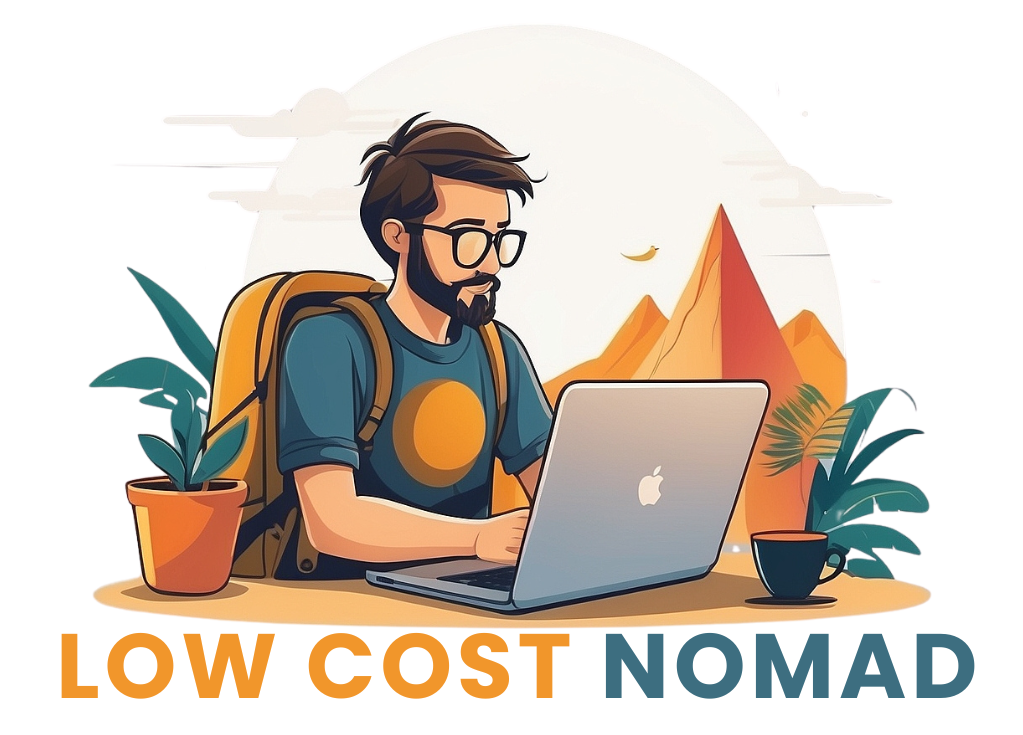Digital Nomad Visa for Portugal: Your Complete Guide
In recent years, the way people work has changed dramatically. More and more individuals are choosing to work remotely, often from different countries. These adventurous souls are known as digital nomads. They combine their work with travel and experiencing new cultures. Portugal, with its beautiful coastlines, historic cities, friendly people, and relatively affordable cost of living, has become a top destination for digital nomads from all over the world. Recognizing this trend, Portugal introduced a specific visa designed just for them: the Digital Nomad Visa for Portugal.
If you dream of working remotely from a cozy cafe in Lisbon, a co-working space in Porto, or a quiet town in the Algarve, this guide is for you. Getting a Digital Nomad Visa for Portugal allows you to live legally in the country while continuing to work for employers or clients outside Portugal. This article will walk you through everything you need to know about the Portugal Digital Nomad Visa, from understanding who is eligible to the step-by-step process of applying and what to expect after you arrive. We aim to make this complex process as simple and clear as possible, using easy-to-understand language.
What Exactly is the Portugal Digital Nomad Visa?
The Digital Nomad Visa for Portugal is officially known as the D8 Visa. It’s a special type of visa designed specifically for remote workers and freelancers who earn their income from outside Portugal. Before this visa existed, many digital nomads used other visa types, like the D7 Visa (which was mainly for passive income earners). The D8 Visa is a much better fit for people whose income comes actively from remote work.
The main idea behind the Portugal Digital Nomad Visa is to allow non-EU/EEA/Swiss citizens to live in Portugal legally for a period while working for companies or clients based in other countries. This means you cannot work for a Portuguese company under this visa. Your work must be done remotely and your income must come from abroad.
There are two main types of the Portugal Digital Nomad Visa:
- Temporary Stay Visa: This is for stays of up to one year. It can be a good option if you want to try living in Portugal for a shorter period to see if you like it.
- Residency Visa: This is for stays longer than one year. If you plan to make Portugal your home for a longer time, this is the visa you’ll likely want. It allows you to apply for a residency permit after you arrive in Portugal, and this residency permit can eventually lead to permanent residency and even Portuguese citizenship after several years.
Most digital nomads who want to build a life in Portugal choose the Residency Visa (D8) because it offers a path to long-term stay and integration. This guide will focus primarily on the process for the Residency Visa, as it’s the more common choice for those truly planning to settle down.
Why Are Digital Nomads Choosing Portugal?
Portugal isn’t just a popular tourist destination; it’s also become a hotspot for remote workers. Why is the Portugal Digital Nomad Visa so sought after? Here are a few reasons:
- Beautiful Scenery & Climate: From the sunny beaches of the Algarve to the historic beauty of Lisbon and Porto and the volcanic landscapes of the Azores and Madeira, Portugal offers incredible variety and generally pleasant weather.
- Affordable (Relatively): While prices have been rising, especially in major cities, Portugal is still generally more affordable than many other Western European countries, particularly for accommodation, food, and daily expenses outside the main tourist zones.
- Safety & Stability: Portugal is known for being one of the safest countries in the world. It’s also a stable European democracy.
- Good Internet: Major cities and many towns have reliable high-speed internet, essential for remote work. Madeira even has a dedicated “Digital Nomad Village.”
- Culture & Lifestyle: Portuguese culture is rich and welcoming. There’s a relaxed pace of life, delicious food, vibrant history, and a strong sense of community.
- Gateway to Europe: Living in Portugal provides easy and relatively cheap travel to other European countries.
- Path to Residency: The Residency Digital Nomad Visa for Portugal offers a clear path to obtaining a Portuguese residency permit, which allows travel within the Schengen Area and can lead to permanent residency and citizenship.
These factors, combined with the existence of a specific visa for remote workers, make the Portugal Digital Nomad Visa a very attractive option.
Who is Eligible for the Portugal Digital Nomad Visa?
Okay, so you’re interested in getting a Digital Nomad Visa for Portugal. But do you qualify? The eligibility requirements are pretty clear:
- You must be a non-EU/EEA/Swiss citizen. If you are a citizen of one of these countries, you don’t need a visa to live and work remotely in Portugal.
- You must work remotely. This is the core requirement. You need to prove that you work for a company located outside Portugal, or that you are a freelancer/business owner with clients mostly outside Portugal.
- You must meet the minimum income requirement. This is perhaps the most important financial requirement. You need to show that you earn at least four times the Portuguese minimum wage per month. The Portuguese minimum wage changes, so you need to check the current amount. As of late 2023 / early 2024, the minimum wage is around €820 per month. So, you would need to show an income of approximately 4 x €820 = €3,280 per month. This income must be stable and consistent.
- You need proof of accommodation in Portugal. When you apply for the visa, you need to show where you plan to live. This can be a rental agreement, proof of buying property, or even a signed declaration from someone in Portugal offering you accommodation (like a friend or family member, although a rental contract is usually preferred).
- You need health insurance. You must have valid health insurance that covers you in Portugal. This insurance needs to meet certain minimum coverage requirements, usually similar to what’s required for the Schengen visa.
- You must have a clean criminal record. You’ll need to provide criminal record certificates from your home country and any other country you’ve lived in for more than a year in the past five years. These usually need to be legalized or apostilled.
Meeting these requirements is the first big step towards getting your Digital Nomad Visa for Portugal.
Understanding the Income Requirement
Let’s look closer at the income part, as it’s where many people have questions. The rule is simple: 4 times the current Portuguese minimum wage. For example, if the minimum wage is €820, you need to show you make at least €3,280 per month from your remote work.
What kind of income counts?
- Salary from an employer outside Portugal: You’ll need to provide your employment contract, recent pay slips (usually the last 3-6 months), and potentially a letter from your employer stating you are allowed to work remotely.
- Freelance income: You’ll need to provide contracts with your clients (located outside Portugal), recent invoices, and bank statements showing regular income deposits.
- Business income: If you run your own business registered outside Portugal, you’ll need to provide proof of ownership, company bank statements, tax returns, and potentially profit and loss statements showing consistent income distribution to you.
The key is to show that this income is stable and reliable. Consulates want to see a history of earning this amount, not just a one-time payment.
The Step-by-Step Process to Get Your Digital Nomad Visa for Portugal
Getting your Digital Nomad Visa for Portugal involves several steps. It’s not just one simple application. Here’s a breakdown of the typical process, especially for the Residency Visa (D8):
- Gather Your Documents: This is often the most time-consuming part. You need to collect *all* the required documents mentioned earlier (passport, proof of income, accommodation, insurance, criminal record, etc.). Make sure they are current and meet the specific requirements (like apostille for the criminal record). Getting a Portuguese Tax Identification Number (NIF) is often necessary *before* you can sign rental contracts or open a bank account, so many applicants get their NIF early on, sometimes through online services if they can’t travel to Portugal beforehand.
- Apply at the Portuguese Consulate or Embassy: You must apply for the visa in your home country or the country where you legally reside. You’ll typically need to book an appointment online, fill out the visa application form, and submit all your documents in person.
- Attend an Interview (If Required): Some consulates might require a short interview to discuss your application and your plans in Portugal.
- Wait for Visa Decision: The consulate will review your application and documents. This process can take several weeks, sometimes longer depending on the consulate’s workload. Be patient.
- Receive Your Visa: If approved, you will receive a visa sticker in your passport. This visa is typically valid for a few months (e.g., 120 days) and is for *two entries*. The first entry is to arrive in Portugal, and the second is usually reserved for a brief trip outside if needed, but the primary purpose is entry to start your residency process.
- Travel to Portugal: With your D8 visa, you can now legally travel to Portugal.
- Apply for Your Residency Permit (AIMA Appointment): This is a crucial step *after* you arrive in Portugal. Your D8 visa allows you to enter Portugal, but it’s the *residency permit* that allows you to live there long-term. You need to schedule an appointment with the Portuguese immigration authority. This used to be SEF (Serviço de Estrangeiros e Fronteiras), but is now the new agency AIMA (Agência para a Integração, Migrações e Asilo). You will attend this appointment with your passport, visa, and all the original documents (and copies) you used for your initial visa application. During this appointment, they will verify your documents, take your biometric data (fingerprints, photo), and process your application for the residency permit card. Waiting times for these appointments can sometimes be long, so it’s important to be aware of this.
- Receive Your Residency Card: If your residency permit application is approved (which it should be if you qualified for the D8 visa and still meet the requirements), you will receive a physical residency card. This card is proof of your legal residency in Portugal, typically valid for two years initially.
This two-step process (visa application abroad, then residency permit application in Portugal) is vital to understand. The Digital Nomad Visa for Portugal gets you *into* the country legally, and the AIMA appointment gets you the right to *stay* long-term.
Detailed List of Required Documents
Let’s break down the documents you’ll need to gather for your Portugal Digital Nomad Visa application. Being well-prepared with your paperwork is key to a smooth process.
- Passport: Your passport must be valid for at least three months beyond your planned stay and have at least two blank pages.
- Visa Application Form: Filled out completely and signed. You can usually download this from the consulate’s website.
- Passport Photos: Recent, standard passport-sized photos.
- Proof of Income:
- Employment contract (if employed), recent pay slips (last 3-6 months), letter from employer confirming remote work permission.
- OR Freelance/service contracts with clients outside Portugal, recent invoices (last 3-6 months), bank statements showing consistent income.
- OR Business registration documents, company bank statements, tax returns, financial statements (if business owner).
- Bank statements (personal) showing sufficient funds to cover your initial period in Portugal and support your declared income.
Strong Tip: Ensure your bank statements clearly show your income coming in and that the amounts meet the minimum requirement (€3,280+ per month, depending on the current minimum wage). Show a few months history to demonstrate stability.
- Proof of Accommodation in Portugal:
- Rental agreement (Contrato de Arrendamento) for a place in Portugal. This is the most common and usually preferred proof. It often requires having a NIF.
- Deed of property ownership (if you bought property).
- Signed declaration from a host in Portugal confirming they will provide accommodation, along with a copy of their ID and proof of their address. (Less common for long-term visas).
- Sometimes, proof of a long-term Airbnb booking or similar for the initial period (e.g., 3-6 months) is accepted, especially if you plan to find a longer-term place after arrival. Check with the specific consulate.
- Proof of Health Insurance: A policy that provides coverage in Portugal (and ideally the Schengen Area) with minimum coverage amounts (often €30,000 or more). The policy must be valid for the duration of your expected stay or show it can be renewed.
- Criminal Record Certificate: From your country of citizenship and any country where you have lived for more than 12 months in the past 5 years. This certificate often needs an Apostille (a type of international legalization) or other form of legalization depending on the country. This process can take time, so start early!
- Authorization for Criminal Record Inquiry: You’ll usually need to sign a form authorizing the Portuguese authorities to check your criminal record in Portugal.
- Proof of NIF (Número de Identificação Fiscal): While not always listed as a *visa* requirement by all consulates, you absolutely need a NIF to sign a rental contract or open a bank account in Portugal, which are often required for the visa or the subsequent residency permit application. Getting this early is highly recommended. You can often get a NIF remotely through online services.
- Proof of Sufficient Funds (Initial): Beyond the monthly income, some consulates might ask to see that you have a certain amount of money in your bank account to cover your initial expenses in Portugal, perhaps a few thousand euros.
- Travel Itinerary/Flight Booking: Sometimes required, showing your planned date of entry into Portugal.
- Other documents: The consulate might ask for additional documents depending on your specific situation. Always check the specific requirements listed on the website of the consulate where you will apply.
Gathering these documents carefully and correctly is crucial for a successful Digital Nomad Visa for Portugal application.
Costs Involved
Getting your Digital Nomad Visa for Portugal isn’t free. Here are some of the costs you can expect:
- Visa Application Fee: Paid to the consulate. This fee is usually around €75 or €90, but can vary slightly depending on your country and the specific consulate.
- AIMA Residency Permit Fee: Paid in Portugal when you apply for your residency permit. This fee is also usually around €75-€90.
- Criminal Record Certificates & Apostille/Legalization: Fees vary widely depending on the country and the process. This can range from tens to hundreds of euros.
- Health Insurance: The cost depends on the provider, coverage level, and your age. Expect to pay anywhere from €30 to €100+ per month.
- Translations: If any of your documents are not in Portuguese or English, you might need to pay for certified translations.
- NIF Acquisition (if done via service): If you use an online service to get your NIF remotely, they charge a fee, typically €100-€200.
- Travel Costs: Flights to Portugal, and potentially travel within Portugal for your AIMA appointment.
- Initial Living Costs: While not a visa fee, you need to have funds for your initial accommodation, setting up utilities, and daily expenses upon arrival.
It’s wise to budget several hundred to over a thousand euros in total for the application process itself, not including your travel and initial living expenses.
How Long Does It Take?
The timeline for getting your Digital Nomad Visa for Portugal can vary a lot. Here’s a rough idea:
- Document Gathering: This depends entirely on you, but getting things like criminal records and apostilles can take several weeks. Getting a NIF remotely might take a week or two.
- Consulate Application Processing: Once you submit your application at the consulate, processing times can range from 2 weeks to 3 months or even longer, depending on the consulate’s location and how busy they are. It’s best to apply well in advance of when you want to move.
- Waiting for AIMA Appointment: This is often the biggest variable. Once you arrive in Portugal, getting an appointment with AIMA to apply for your residency permit can sometimes involve significant waiting lists, ranging from a few weeks to several months.
- Receiving Residency Card: After your AIMA appointment, it might take a few more weeks for your residency card to be processed and mailed to you.
Realistically, the entire process from starting to gather documents to having your residency card in hand could take anywhere from 3 to 9 months or even longer in some cases. Patience is essential!
Living in Portugal with the Digital Nomad Visa
Once you have your Digital Nomad Visa for Portugal and subsequently your residency permit, you are legally allowed to live in Portugal. Here are a few things to consider about life there:
- Accommodation: Finding long-term accommodation, especially affordable options in popular cities, can be challenging. Start looking early, perhaps securing a short-term rental for your first month or two while you search.
- Banking: You’ll likely want to open a Portuguese bank account. Having your NIF makes this much easier.
- Taxes: Understanding your tax obligations is important. As a resident in Portugal, you may be liable for Portuguese income tax. Portugal offers a special tax regime called the Non-Habitual Resident (NHR) status, which can offer significant tax benefits on foreign income for the first 10 years. This is complex and requires professional tax advice, but it’s a major draw for many digital nomads.
- Healthcare: As a legal resident, you can access the public healthcare system (SNS). Many expats also choose to maintain private health insurance for faster access and wider options.
- Community: Portugal has growing digital nomad communities, especially in Lisbon, Porto, and Madeira. There are often meetups and online groups.
Holding the Portugal Digital Nomad Visa and residency permit allows you to truly integrate and enjoy life in the country.
Pros and Cons of the Portugal Digital Nomad Visa
Like any visa, the Digital Nomad Visa for Portugal has its advantages and disadvantages:
Pros:
- Legal Residency: Provides a clear legal pathway to live in Portugal long-term.
- Schengen Area Travel: The residency permit allows visa-free travel within the Schengen Area.
- Path to Permanent Residency/Citizenship: After 5 years of legal residency, you can apply for permanent residency or citizenship.
- Attractive Country: Live and work in a beautiful, safe, and culturally rich country.
- Tax Benefits (Potentially): Access to the NHR tax regime can significantly reduce your tax burden on foreign income for 10 years.
- Family Reunification: You can apply to bring your family (spouse, children) to Portugal to live with you.
Cons:
- Bureaucracy: The application process, especially the AIMA appointment stage in Portugal, can be slow and require patience.
- Income Requirement: The minimum income of 4x the minimum wage might be high for some digital nomads, especially those just starting out.
- Proof of Accommodation: Securing a rental contract from abroad can be difficult without a NIF or being physically present.
- Document Requirements: Gathering all the necessary documents, including apostilled criminal records, can be time-consuming and costly.
- Processing Times: The overall timeline can be unpredictable and lengthy.
Despite the potential hurdles, for many remote workers, the benefits of obtaining the Digital Nomad Visa for Portugal far outweigh the challenges.
Tips for a Successful Application
Here are some tips to help increase your chances of successfully getting your Digital Nomad Visa for Portugal:
- Start Early: Don’t wait until the last minute. Begin gathering documents and checking consulate requirements months in advance.
- Get Your NIF Remotely: Seriously consider getting your Portuguese tax number (NIF) before you even apply for the visa. This will make securing accommodation and potentially opening a bank account much easier, which are often needed for the application or the AIMA appointment.
- Organize Your Documents: Keep everything well-organized. Make copies of everything.
- Prove Stable Income: Provide more than just one month’s income proof. Show consistency over several months. Highlight where the income comes from and that it meets the required threshold.
- Secure Solid Accommodation Proof: A signed rental contract is generally the strongest proof.
- Check Consulate Specific Requirements: Requirements can vary slightly between consulates. Always check the official website of the consulate where you will apply.
- Be Patient: The process can take time. Try not to get discouraged by delays.
- Consider Professional Help: If you find the process overwhelming, consider using an immigration lawyer or visa service specializing in the Digital Nomad Visa for Portugal. They can help ensure your application is complete and correct.
Following these tips can make navigating the path to your Portugal Digital Nomad Visa much smoother.
Conclusion: Your Portugal Digital Nomad Dream Awaits
The rise of remote work has opened up incredible possibilities for living and working from almost anywhere in the world. Portugal has embraced this change by offering the dedicated Digital Nomad Visa for Portugal (D8 Visa), making it easier than ever for remote workers to make this beautiful country their home.
While the application process requires careful planning, gathering specific documents, and meeting clear income and accommodation requirements, the reward is the opportunity to live legally in Portugal, enjoy its unique lifestyle, and potentially gain long-term residency in the European Union. You’ve learned about the eligibility criteria, the necessary documents from proof of income to accommodation and health insurance, the step-by-step application process involving both a visa from abroad and a residency permit in Portugal, and key practicalities of living there.
Getting a Digital Nomad Visa for Portugal is a significant step, but it’s achievable with preparation and attention to detail. If you meet the requirements and are ready for an adventure, Portugal could be the perfect place to blend your remote career with a rich and fulfilling life abroad. Take the information you’ve learned here, check the official sources for the most up-to-date details, and start planning your move. Your dream of being a digital nomad in Portugal is closer than you think.




